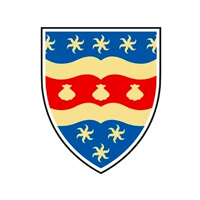fees waived
Oceanography and Coastal Processes, BSc (Hons), with industry placement
University of Plymouth, United Kingdom
Subject ranking
UK / Guardian 17th
UK / QS 17th
UK / Guardian 18th
Costs
food & rentS$16.8K / year
Entry requirements
Scholarships
Unlimited quantity
Unlimited quantity
Unlimited quantity
Limited quantity
Information
Code
Code
Intakes
Website (External)
Programmes
Information
Duration
2028
Course summary
Are you motivated by a desire to understand processes in the world’s oceans that drive phenomena such as ocean circulation, ocean acidification, sea-level rise or coastal erosion? If so, this course prepares you for a career in applied oceanography, coastal zone management or scientific research. You’ll develop the practical skills needed to collect and analyse data from the marine environment alongside an advanced understanding of ocean dynamics and processes contributing to shoreline change.You will participate in practical activities during field work in Plymouth Sound, and further afield during the residential field week. You’ll benefit from access to a range of high specification oceanographic instrumentation that you will be trained to independently prepare, deploy and recover. You’ll pursue optional subjects that interest you most.
- In the 2020 National Student Survey, 100 per cent expressed overall satisfaction with the course; 100 per cent of students felt staff on this course were good at explaining things; 100 per cent felt that the staff made the subject interesting and 100 per cent found the course intellectually stimulating.*
- Participate in practical activities during field work in Plymouth Sound, and further afield during the residential field week.
- Benefit from access to a range of high specification oceanographic instrumentation that you will be trained to independently prepare, deploy and recover.
- Pursue optional subjects that interest you most from a range including meteorology, remote sensing, marine conservation, hydrographic surveying, modelling ocean processes and marine pollution.
- Progress into work in oceanographic research and consultancy, coastal zone management and related marine-science industries such as the emerging field of marine renewable energy.
- Develop your range of practical skills with our own fully-equipped fleet of boats, a £4.65 million Marine Station used as a base for fieldwork afloat and industry-standard oceanographic and surveying equipment.
- Choose to take the industry-recognised professional diving qualification (HSE Professional SCUBA) alongside your degree and an optional scientific diving module to provide training and qualification for diving-based research projects and employment (limited places and additional costs apply).
- Experience an overseas field course that integrates ocean science knowledge and understanding from across the different sub-disciplines to address real-world issues.
Modules
Your first year, shared across the Marine Science Undergraduate Scheme, introduces the full range of topics within the degree and develops your underpinning scientific knowledge and practical skills. You’ll develop your understanding of the Earth’s oceans and the key physical, chemical and biological processes that occur in these systems. You’ll build practical skills and enhance your ability to analyse, present and interpret scientific data through field-based activities.In your second year, you’ll deepen your understanding of the core aspects of physical, chemical and biological oceanography as well as beginning to focus on the physical processes that shape the open ocean and coastal environments. You’ll receive advanced training in the preparation, programming, deployment, recovery and maintenance of instrumentation and develop a proposal for your final year research project. You’ll also be able to broaden your interests into areas such as meteorology, remote sensing and scientific diving.During your final year, you’ll complete your core training in advanced aspects of ocean dynamics and coastal processes and participate in a residential field trip where you’ll use and develop your practical skills. A large proportion of your time will be spent completing your individual research project for which you will be given guidance by a member of academic staff. You’ll also be able to pursue an option module, for example to explore ocean modelling, climate science or marine pollution.The modules shown for this course or programme are those being studied by current students, or expected new modules. Modules are subject to change depending on year of entry.
Assessment method
On average: 10% written exam80% coursework4% presentation5% multiple choice exam1% in-class test
Qualified teacher status (QTS)
To work as a teacher at a state school in England or Wales, you will need to achieve qualified teacher status (QTS). This is offered on this course for the following level:- Course does not award QTS
Your first year, shared across the Marine Science Undergraduate Scheme, introduces the full range of topics within the degree and develops your underpinning scientific knowledge and practical skills. You’ll develop your understanding of the Earth’s oceans and the key physical, chemical and biological processes that occur in these systems. You’ll build practical skills and enhance your ability to analyse, present and interpret scientific data through field-based activities. In your second year, you’ll deepen your understanding of the core aspects of physical, chemical and biological oceanography as well as beginning to focus on the physical processes that shape the open ocean and coastal environments. You’ll receive advanced training in the preparation, programming, deployment, recovery and maintenance of instrumentation and develop a proposal for your final year research project. You’ll also be able to broaden your interests into areas such as meteorology, remote sensing and scientific diving. During your final year, you’ll complete your core training in advanced aspects of ocean dynamics and coastal processes and participate in a residential field trip where you’ll use and develop your practical skills. A large proportion of your time will be spent completing your individual research project for which you will be given guidance by a member of academic staff. You’ll also be able to pursue an option module, for example to explore ocean modelling, climate science or marine pollution. The modules shown for this course or programme are those being studied by current students, or expected new modules. Modules are subject to change depending on year of entry.
A local representative of University of Plymouth in Singapore is available online to assist you with enquiries about this course.

